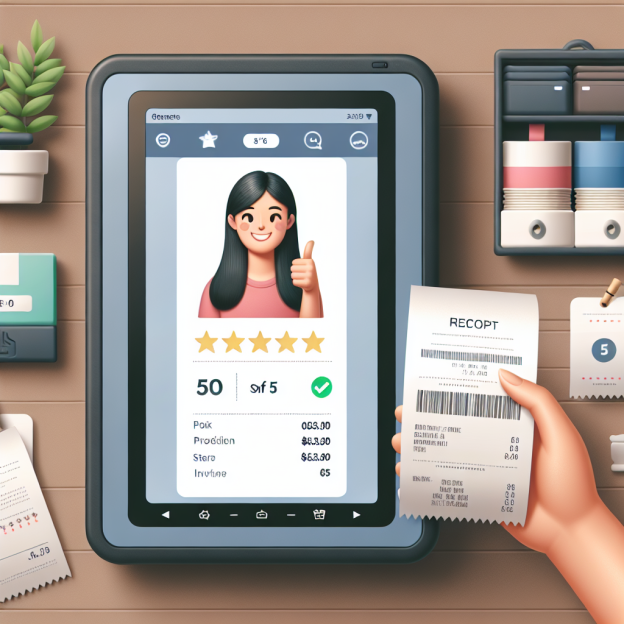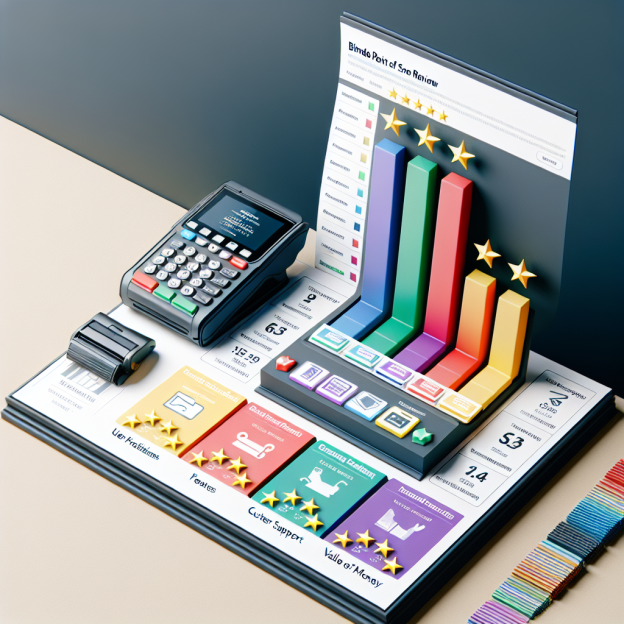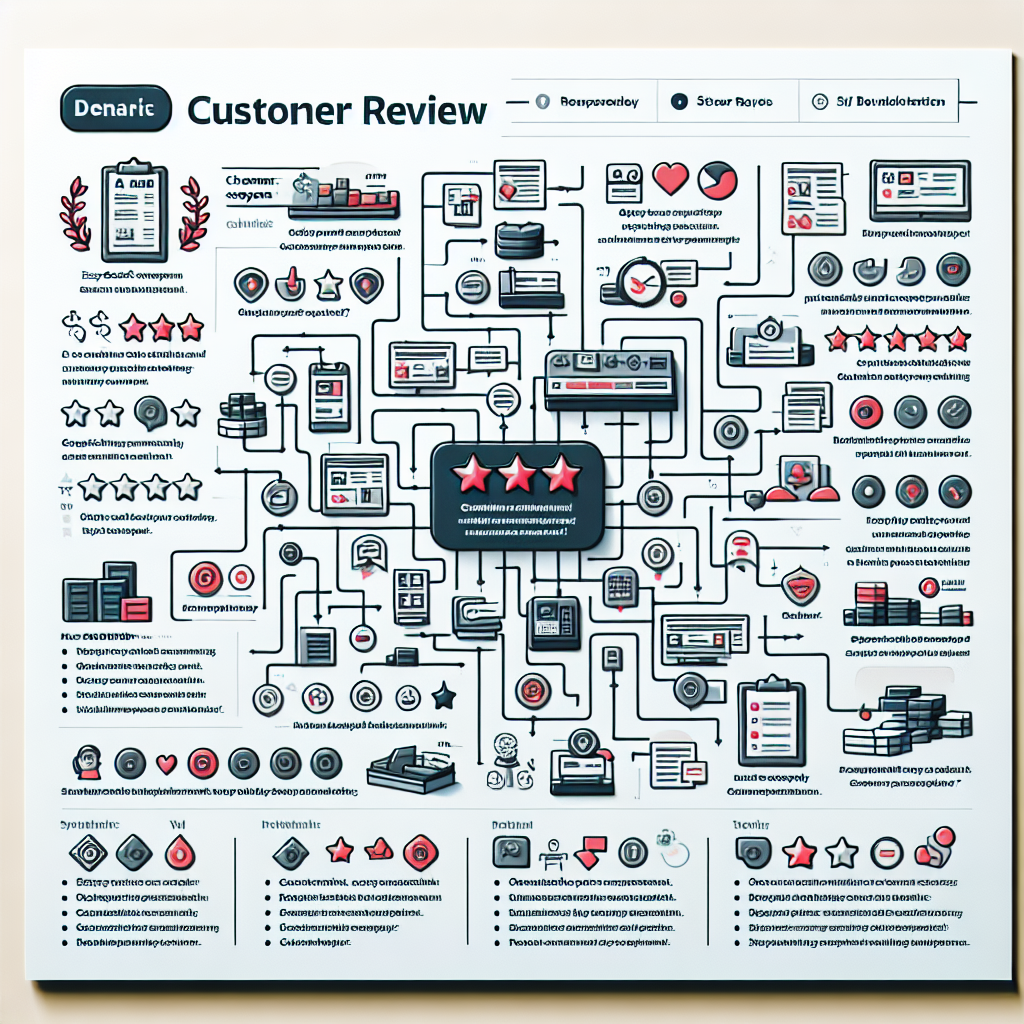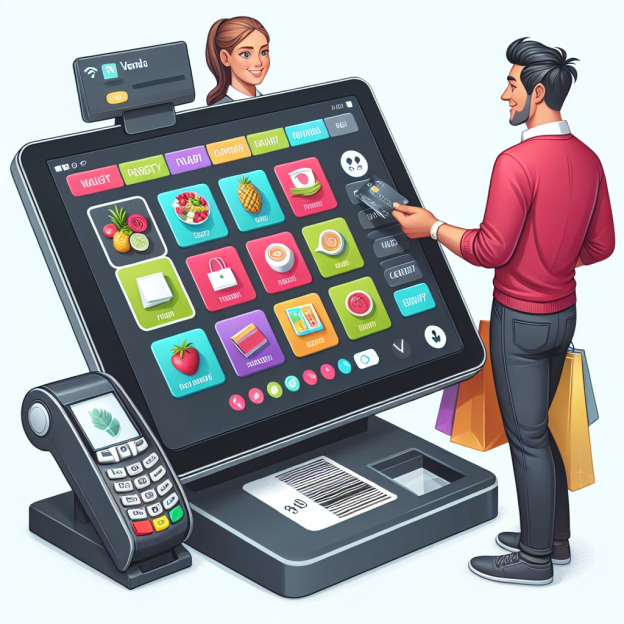Helcim POS is a comprehensive point-of-sale system designed to cater to the needs of small to medium-sized businesses, offering a seamless blend of payment processing and business management tools. Known for its transparent pricing and user-friendly interface, Helcim POS provides merchants with a robust platform to streamline their operations, enhance customer experiences, and drive growth. With features such as inventory management, customer relationship management, and detailed reporting, Helcim POS empowers businesses to efficiently manage their sales and operations both in-store and online. Its cloud-based infrastructure ensures accessibility and flexibility, allowing business owners to monitor and control their operations from anywhere. Helcim’s commitment to providing excellent customer support and its focus on security and compliance make it a reliable choice for businesses seeking a versatile and efficient POS solution.
Overview Of Helcim POS Features
Helcim POS is a comprehensive point-of-sale system designed to cater to the needs of small to medium-sized businesses, offering a robust suite of features that streamline operations and enhance customer experiences. At the core of Helcim POS is its user-friendly interface, which simplifies the process of managing sales, inventory, and customer interactions. This intuitive design ensures that even those with minimal technical expertise can navigate the system with ease, thereby reducing the learning curve and allowing businesses to focus on their primary objectives.
One of the standout features of Helcim POS is its seamless integration capabilities. The system is designed to work harmoniously with various third-party applications, enabling businesses to customize their operations according to specific needs. This flexibility is particularly beneficial for businesses that rely on multiple software solutions, as it allows for a cohesive operational ecosystem. Furthermore, Helcim POS supports both in-store and online transactions, providing businesses with the versatility to operate in diverse environments and reach a broader customer base.
In addition to its integration capabilities, Helcim POS offers a comprehensive inventory management system. This feature allows businesses to track stock levels in real-time, set up automatic reorder alerts, and manage suppliers efficiently. By maintaining accurate inventory records, businesses can minimize the risk of stockouts or overstocking, thereby optimizing their supply chain operations. Moreover, the system’s reporting tools provide valuable insights into sales trends and inventory performance, enabling data-driven decision-making that can enhance profitability.
Another notable aspect of Helcim POS is its customer relationship management (CRM) functionality. This feature allows businesses to store and manage customer information, track purchase histories, and implement loyalty programs. By leveraging these capabilities, businesses can foster stronger relationships with their customers, personalize marketing efforts, and ultimately drive repeat business. The CRM tools are designed to be both powerful and easy to use, ensuring that businesses can maximize their customer engagement efforts without unnecessary complexity.
Security is a paramount concern for any point-of-sale system, and Helcim POS addresses this with robust security measures. The system is equipped with end-to-end encryption and complies with industry standards such as PCI DSS, ensuring that sensitive customer data is protected during transactions. This commitment to security not only safeguards business operations but also instills confidence in customers, who can trust that their information is handled with the utmost care.
Moreover, Helcim POS offers a transparent pricing model, which is a significant advantage for businesses seeking to manage costs effectively. Unlike many competitors that charge hidden fees or require long-term contracts, Helcim provides clear and straightforward pricing, allowing businesses to budget with confidence. This transparency extends to its customer support services, which are readily available to assist with any technical issues or inquiries, ensuring that businesses can maintain smooth operations without disruption.
In conclusion, Helcim POS stands out as a versatile and reliable point-of-sale solution that caters to the diverse needs of small to medium-sized businesses. Its user-friendly interface, integration capabilities, comprehensive inventory management, CRM functionality, robust security measures, and transparent pricing make it an attractive option for businesses seeking to enhance their operational efficiency and customer engagement. By choosing Helcim POS, businesses can equip themselves with the tools necessary to thrive in a competitive marketplace.
Pros And Cons Of Helcim POS
Helcim POS, a point-of-sale system designed to cater to the needs of small to medium-sized businesses, has garnered attention for its comprehensive features and user-friendly interface. As businesses increasingly seek efficient and reliable POS systems to streamline operations, understanding the pros and cons of Helcim POS becomes essential for potential users. This review aims to provide an informative analysis of the system, highlighting its strengths and areas for improvement.
One of the most significant advantages of Helcim POS is its transparent pricing model. Unlike many competitors that impose hidden fees or complex pricing structures, Helcim offers a straightforward, interchange-plus pricing model. This transparency allows businesses to predict costs more accurately, fostering trust and enabling better financial planning. Furthermore, Helcim does not require long-term contracts, which provides flexibility for businesses that may need to adapt quickly to changing circumstances.
In addition to its pricing model, Helcim POS is praised for its robust feature set. The system includes essential functionalities such as inventory management, customer relationship management, and detailed reporting tools. These features are crucial for businesses aiming to optimize their operations and enhance customer experiences. Moreover, Helcim POS integrates seamlessly with various payment methods, including credit and debit cards, contactless payments, and mobile wallets, ensuring that businesses can cater to diverse customer preferences.
Another notable strength of Helcim POS is its user-friendly interface. The system is designed to be intuitive, making it accessible even for those with limited technical expertise. This ease of use reduces the time and resources required for training staff, allowing businesses to focus on their core operations. Additionally, Helcim provides excellent customer support, offering assistance through multiple channels such as phone, email, and live chat. This support is invaluable for businesses that may encounter technical issues or require guidance in maximizing the system’s capabilities.
Despite these advantages, there are some areas where Helcim POS could improve. One potential drawback is that the system may not be as feature-rich as some of its competitors, particularly for larger businesses with more complex needs. While Helcim POS covers the basics effectively, businesses requiring advanced features such as extensive customization options or industry-specific tools might find the system somewhat limited. Consequently, it is crucial for potential users to assess their specific requirements before committing to Helcim POS.
Another consideration is the initial setup process. Although the system is generally easy to use, some users have reported challenges during the initial setup phase. This can be attributed to the need for manual data entry and configuration, which may be time-consuming for businesses with extensive inventories or customer databases. However, once the setup is complete, the system’s performance and reliability tend to outweigh these initial hurdles.
In conclusion, Helcim POS offers a compelling solution for small to medium-sized businesses seeking a transparent, user-friendly, and reliable point-of-sale system. Its strengths lie in its straightforward pricing model, comprehensive feature set, and excellent customer support. However, potential users should be aware of its limitations, particularly regarding advanced features and the initial setup process. By carefully evaluating their specific needs and priorities, businesses can determine whether Helcim POS is the right fit for their operations, ultimately enhancing their efficiency and customer satisfaction.
Helcim POS Pricing And Plans
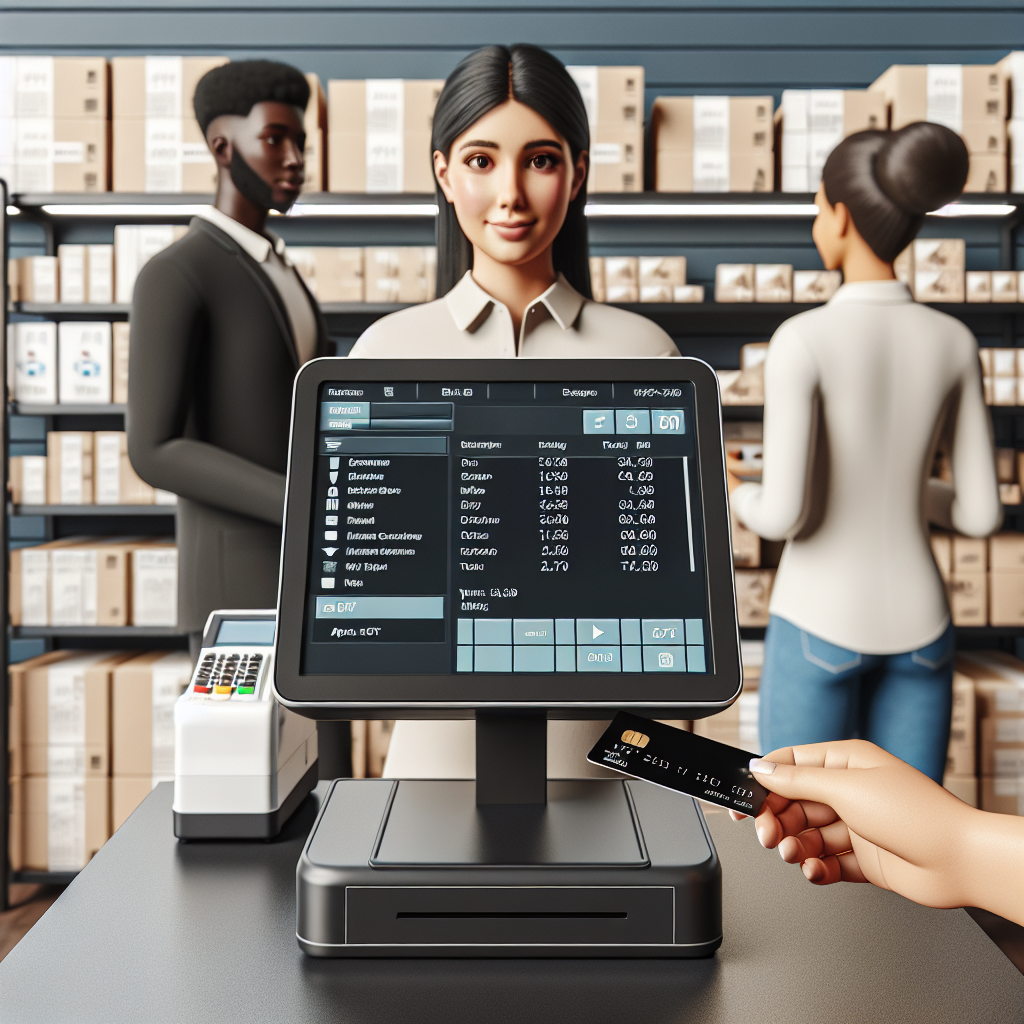
In evaluating the Helcim POS system, understanding its pricing and plans is crucial for businesses considering this solution. Helcim offers a transparent and straightforward pricing model, which is a significant advantage for small to medium-sized enterprises seeking clarity in their financial commitments. Unlike many competitors that impose complex fee structures, Helcim provides a clear, interchange-plus pricing model. This approach ensures that businesses are charged a fixed percentage above the interchange rate, which is the fee set by credit card networks. Consequently, this transparency allows businesses to predict their costs more accurately, fostering trust and long-term relationships with Helcim.
Moreover, Helcim does not charge any monthly fees for its POS software, which is a notable benefit for businesses looking to minimize overhead costs. This absence of monthly fees is particularly appealing to startups and small businesses that may not have the financial flexibility to accommodate recurring expenses. Instead, Helcim’s revenue model is primarily based on transaction fees, which means that businesses only pay when they make sales. This pay-as-you-go structure aligns with the cash flow realities of many businesses, making Helcim an attractive option for those who prefer to avoid fixed monthly costs.
In addition to the absence of monthly fees, Helcim also refrains from imposing setup fees or cancellation fees. This policy further enhances its appeal, as businesses can adopt the Helcim POS system without the fear of incurring additional costs should they decide to switch providers in the future. The flexibility offered by Helcim’s pricing model is a testament to its customer-centric approach, which prioritizes the needs and concerns of its clients.
Furthermore, Helcim provides volume-based discounts, which can be particularly beneficial for businesses with higher transaction volumes. As businesses grow and their transaction volumes increase, they can benefit from reduced rates, thereby lowering their overall processing costs. This scalability is an essential feature for businesses with ambitions of expansion, as it ensures that their payment processing costs remain competitive as they grow.
Additionally, Helcim’s pricing model includes a range of features that add value to its POS system. These features include inventory management, customer relationship management, and reporting tools, all of which are integrated into the POS software at no additional cost. By bundling these features into its pricing model, Helcim provides a comprehensive solution that meets the diverse needs of businesses without requiring them to invest in additional software or services.
In conclusion, Helcim’s pricing and plans are designed with the needs of businesses in mind, offering transparency, flexibility, and value. The absence of monthly fees, setup fees, and cancellation fees, combined with a clear interchange-plus pricing model, makes Helcim an attractive option for businesses seeking a cost-effective POS solution. Furthermore, the inclusion of valuable features and volume-based discounts ensures that Helcim can accommodate the needs of businesses as they grow and evolve. Overall, Helcim’s approach to pricing and plans reflects its commitment to providing a customer-centric service that supports the success of its clients.
User Experience With Helcim POS
The user experience with Helcim POS is characterized by its intuitive design and robust functionality, making it a compelling choice for businesses seeking a reliable point-of-sale system. At the heart of Helcim POS is its user-friendly interface, which is designed to streamline operations and enhance efficiency. The system’s layout is clean and organized, allowing users to navigate through various functions with ease. This intuitive design minimizes the learning curve for new users, enabling businesses to integrate the system into their operations swiftly.
One of the standout features of Helcim POS is its seamless integration capabilities. Businesses can effortlessly connect the POS system with other essential tools, such as accounting software and inventory management systems. This integration ensures that data flows smoothly across platforms, reducing the need for manual data entry and minimizing the risk of errors. Consequently, businesses can maintain accurate records and make informed decisions based on real-time data.
Moreover, Helcim POS offers a high degree of customization, allowing businesses to tailor the system to their specific needs. Users can customize the interface to reflect their brand identity, ensuring a consistent customer experience. Additionally, the system supports a wide range of payment options, including credit and debit cards, contactless payments, and mobile wallets. This flexibility caters to diverse customer preferences, enhancing the overall shopping experience and potentially increasing sales.
Transitioning to the aspect of customer support, Helcim POS excels in providing comprehensive assistance to its users. The company offers a variety of support channels, including phone, email, and live chat, ensuring that help is readily available when needed. Furthermore, Helcim provides an extensive library of resources, such as tutorials and FAQs, empowering users to troubleshoot common issues independently. This commitment to customer support underscores Helcim’s dedication to ensuring a positive user experience.
Security is another critical component of the Helcim POS user experience. The system employs advanced security measures to protect sensitive customer data, including encryption and tokenization. These measures help safeguard against data breaches and fraud, providing peace of mind to both businesses and their customers. Additionally, Helcim POS is compliant with industry standards, such as PCI DSS, further reinforcing its commitment to security.
In terms of performance, Helcim POS is known for its reliability and speed. The system processes transactions quickly, reducing wait times for customers and improving overall service efficiency. This reliability is crucial for businesses that experience high volumes of transactions, as it ensures that operations run smoothly even during peak periods. Furthermore, Helcim POS is cloud-based, allowing businesses to access their data from anywhere with an internet connection. This accessibility is particularly beneficial for businesses with multiple locations, as it enables centralized management and oversight.
In conclusion, the user experience with Helcim POS is marked by its intuitive design, seamless integration capabilities, and robust security features. The system’s customization options and comprehensive customer support further enhance its appeal, making it a versatile solution for businesses of all sizes. By prioritizing user experience, Helcim POS not only meets the needs of businesses but also contributes to a positive customer experience, ultimately supporting business growth and success.
Helcim POS Compared To Competitors
In the ever-evolving landscape of point-of-sale (POS) systems, businesses are constantly seeking solutions that not only meet their operational needs but also offer a competitive edge. Helcim POS has emerged as a noteworthy contender in this arena, providing a comprehensive suite of features designed to streamline transactions and enhance customer experiences. When compared to its competitors, Helcim POS stands out in several key areas, making it a compelling choice for businesses of varying sizes and industries.
To begin with, Helcim POS distinguishes itself through its transparent pricing model. Unlike many competitors that often employ complex fee structures, Helcim offers a straightforward, interchange-plus pricing model. This approach ensures that businesses are only charged based on the actual cost of processing transactions, plus a fixed markup. Consequently, this transparency allows businesses to better predict their expenses and avoid unexpected fees, a significant advantage over competitors who may impose hidden charges or tiered pricing schemes.
Moreover, Helcim POS excels in its user-friendly interface and ease of integration. The system is designed to be intuitive, reducing the learning curve for new users and enabling businesses to quickly adapt to the platform. This is particularly beneficial when compared to some competitors whose systems may require extensive training or technical expertise. Additionally, Helcim POS offers seamless integration with various accounting and e-commerce platforms, allowing businesses to synchronize their operations effortlessly. This level of compatibility is not always matched by competitors, who may offer limited integration options or require additional software to achieve similar functionality.
Another area where Helcim POS shines is its customer support. Businesses can rely on Helcim’s dedicated support team, which is known for its responsiveness and expertise. This contrasts with some competitors who may offer limited support hours or charge extra for premium support services. Helcim’s commitment to customer service ensures that businesses can resolve issues promptly, minimizing downtime and maintaining operational efficiency.
Furthermore, Helcim POS provides robust reporting and analytics tools that empower businesses to make informed decisions. The system offers detailed insights into sales trends, inventory levels, and customer behavior, enabling businesses to optimize their operations and enhance profitability. While many competitors also offer reporting features, Helcim’s analytics are particularly comprehensive and easy to interpret, providing a clear advantage for businesses seeking to leverage data-driven strategies.
Security is another critical consideration for businesses evaluating POS systems, and Helcim POS does not disappoint in this regard. The platform employs advanced security measures, including end-to-end encryption and PCI compliance, to protect sensitive customer data. This level of security is on par with, if not superior to, many competitors, ensuring that businesses can process transactions with confidence.
In conclusion, Helcim POS offers a compelling combination of transparent pricing, user-friendly design, excellent customer support, comprehensive analytics, and robust security features. These attributes position it favorably against competitors, making it an attractive option for businesses seeking a reliable and efficient POS solution. As the market for POS systems continues to grow, Helcim’s commitment to innovation and customer satisfaction will likely ensure its continued success and relevance in the industry.
How To Get Started With Helcim POS
Getting started with Helcim POS is a straightforward process that can significantly enhance the efficiency of your business operations. Helcim, known for its transparent pricing and robust features, offers a point-of-sale system that is both user-friendly and comprehensive. To begin, the first step involves signing up for an account on the Helcim website. This process is designed to be seamless, requiring basic information about your business, such as its name, address, and contact details. Once your account is created, you will receive access to the Helcim Dashboard, which serves as the central hub for managing your POS system.
Transitioning from account creation to system setup, the next phase involves configuring your POS system to suit your business needs. Helcim provides a customizable interface, allowing you to tailor the system to match your specific requirements. You can start by setting up your product catalog, which involves entering details about the products or services you offer. This includes product names, descriptions, prices, and any applicable taxes. Helcim’s intuitive interface makes it easy to organize your inventory, ensuring that your staff can quickly access product information during transactions.
Following the setup of your product catalog, it is essential to configure your payment options. Helcim POS supports a variety of payment methods, including credit and debit cards, contactless payments, and mobile wallets. To enable these options, you will need to connect your Helcim account to a bank account where funds from transactions will be deposited. Helcim’s transparent pricing model means there are no hidden fees, and you can view detailed reports on transaction fees directly from the dashboard.
Once your payment options are configured, the next step is to set up user accounts for your staff. Helcim POS allows you to create individual profiles for each employee, granting them access to the system based on their roles. This feature not only enhances security but also enables you to track sales performance and manage employee permissions effectively. Training your staff to use the Helcim POS system is crucial, and fortunately, Helcim offers a range of resources, including tutorials and customer support, to assist with this process.
As you move forward, integrating Helcim POS with other business tools can further streamline your operations. Helcim offers integrations with popular accounting software, e-commerce platforms, and customer relationship management systems. These integrations allow for seamless data transfer, reducing manual entry and minimizing errors. By connecting your POS system with other tools, you can gain valuable insights into your business performance and make informed decisions.
Finally, once your Helcim POS system is fully operational, it is important to regularly review and optimize its use. Helcim provides detailed analytics and reporting features that offer insights into sales trends, customer behavior, and inventory levels. By analyzing this data, you can identify areas for improvement and adjust your strategies accordingly. Additionally, Helcim’s customer support team is available to assist with any technical issues or questions that may arise, ensuring that your POS system continues to operate smoothly.
In conclusion, getting started with Helcim POS involves a series of well-defined steps, from account creation to system optimization. By following these steps and utilizing the resources provided by Helcim, businesses can effectively implement a POS system that enhances operational efficiency and supports growth.
Q&A
1. **What is Helcim POS?**
Helcim POS is a point-of-sale system designed for small to medium-sized businesses, offering features like payment processing, inventory management, and customer relationship management.
2. **What are the key features of Helcim POS?**
Key features include integrated payment processing, inventory tracking, customer management, invoicing, and reporting tools.
3. **How is the pricing structured for Helcim POS?**
Helcim offers transparent pricing with no monthly fees, relying on a pay-as-you-go model with competitive transaction rates.
4. **What are the pros of using Helcim POS?**
Pros include no monthly fees, transparent pricing, robust features for small businesses, and excellent customer support.
5. **What are the cons of using Helcim POS?**
Cons may include limited hardware options and the need for internet connectivity to process transactions.
6. **Who would benefit most from using Helcim POS?**
Small to medium-sized businesses looking for a cost-effective, feature-rich POS system with transparent pricing would benefit most from Helcim POS.Helcim’s POS system is a robust and versatile solution for small to medium-sized businesses, offering a comprehensive suite of features that include inventory management, customer relationship management, and seamless payment processing. Its transparent pricing model, with no hidden fees or long-term contracts, makes it an attractive option for businesses seeking cost-effective solutions. The user-friendly interface and strong customer support further enhance its appeal, making Helcim POS a reliable choice for businesses looking to streamline operations and improve customer service. However, businesses with highly specialized needs may need to assess whether Helcim’s offerings align perfectly with their requirements. Overall, Helcim POS stands out as a strong contender in the POS market, particularly for businesses prioritizing transparency and ease of use.

